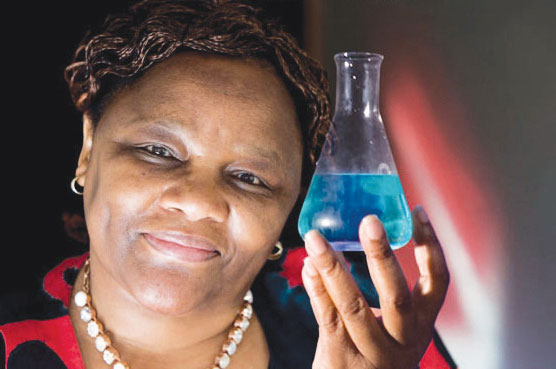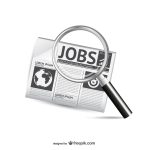Women in science are a rare sight and are even a disturbing one according to Nobel Prize winner, Tim Hunt who sparked controversy when he claimed that women should not be in science, as they can prove distracting to male scientists in the workplace.
Although this claim might sound outrageous, it is however true that there needs to be an upsurge of women in Science and STEM roles, especially on the African continent. It is in the light of this that we attempt to (further) push the awareness by putting focus on some remarkable female scientists who have made it against the odds, and the support systems they have set up to encourage women to pursue careers in science and technology in Africa.
1. Wangari Muta Maathai, Agriculture, Kenya
Wangari Muta Maathai is the first African woman to receive the Nobel Peace Prize. She was also the first female scholar from East and Central Africa to take a doctorate (in biology), and the first female professor ever in her home country of Kenya. In 1977, she started The Green Belt Movement aimed at countering the deforestation that was threatening the means of subsistence of the agricultural population. The campaign encouraged women to plant trees in their local environments and to think ecologically. The Green Belt Movement spread to other African countries, and contributed to the planting of over thirty million trees.
Dr. Maathai’s courage and life’s work has left a positive legacy for women scientists in Africa, one which perpetuates hope and proves that change is possible through education.
2. Tebello Nyokong, Chemistry, South Africa
Tebello Nyokong is one of Africa’s ten most influential women in science and technology. The recipient of a South African Chemical Institute Gold Medal, a National Research Foundation Lifetime Achievement Award, a L’Oreal-UNESCO Award for Women in Science and the Presidency of South Africa’s Order of Mapungubwe in Bronze.
A former Fulbright Scholar who featured in 21 Icons South Africa, Nyokong is a distinguished professor of chemistry at Rhodes University, where she has supervised over 80 post graduate research theses. And all Tebello Nyokong dreamt of as a child was owning a pair of shoes. At 65 years of age, she continues to make strides forward, each one inspiring young women in science to step up and lead South Africa’s quest for knowledge and innovation into the next decade.
3. Ola Orekunrin, Medicine, Nigeria
Dr Ola Orekunrin is the founder and Managing Director of Flying Doctors Nigeria Ltd., the first indigenous air ambulance in West Africa based in Lagos, Nigeria. Orekunrin’s company, featured on the BBC, CNN and NPR, provides urgent helicopter,medical repatriation to medical facilities abroad, medico-logistics, inter-hospital transfers and evacuation services. Ore has been listed as one of forbes 30 under 30 entrepreneurs and is no doubt an inspiration to female doctors who aspire to be innovative.
4. Ncumisa Jilata, Neurosurgeon, South Africa
South African Dr Ncumisa Jilata 29, has become Africa’s youngest neurosurgeon following her Fellowship graduation in May 2017. Jilata is also one of only five black female brain surgeons in South Africa. She joins 150 other female doctors and medical residents working in the neurosurgical field across Africa, according to the most recent survey by the World Federation of Neurological Societies.
She hopes that her landmark achievement will inspire more female medical students to add to much-needed surgical expertise on the continent. Jilata was inspired while still in high school to follow her dream of becoming a brain surgeon.
5. Ameenah Gurib-Fakim, Biologist, Mauritius
Ameenah Gurib-Fakim 57, also known as the Presidential Scientist, is a Mauritian biodiversity scientist and the current President of Mauritius since 2015. Ameenah has been particularly committed to promoting the use of African medicinal plants that can be used to replace conventional—and expensive—medications sold in pharmacies. Her research led to her co-authoring more than twenty books and nearly 80 publications in the field, as well as being co- editor of several volumes.
During her career, she has led numerous projects supported by international agencies such as the United Nations, the European Union and the Canadian Development Agency. She is an advisor to the International Science Foundation of Sweden and member of the Scientific Committee of the International Program in Chemical Sciences, at the University of Uppsala. She is an expert consultant for Infectious Diseases, a special program of the UNICEF/UNDP/World Bank/WHO. She founded the CEPHYR, the Herbal Center for Research and Development, based in Mauritius and its partner laboratory Elabio in Paris.
6. Nashwa Eassa, Nanoparticle Physicist, Sudan
Dr. Nashwa has a Master of Science in Material Physics and Nanotechnology and is pursuing a Postdoctoral fellowship in nano-photonics. She founded Sudanese Women in Science and due to her research in nanoparticle physics, won the Elsevier Foundation Award for Early Career Women Scientists in the Developing World in 2015. She is also the assistant professor of physics at Al Neelain University, Khartoum and is currently collaborating on a project that aims at sanitizing water through solar radiation.
7. Godliver Businge, Civil Engineer, Uganda
Godliver graduated from St Joseph’s Technical Institute in Kisubi in 2012, and began her career as a civil engineer by joining the Global Women’s Water Initiative. Here, she works on teaching rural women about construction and setting up water, sanitation, and hygiene-businesses (WASH), such as latrines. She also hosted a radio show, “Ladies Night” which was focused on creating awareness of the values of educating girls. She was also listed as a Female Water Role Model by Reuters’ trust.org.
8. Anne-Marie Imafidon, STEM Education, Nigeria
Anne-Marie Imafidon 27, is a computing, mathematics and language child prodigy. She is the eldest child of a Nigerian family described by experts as “world’s smartest family”. She and her 3 younger siblings, Christina and twins Peter and Paula, are child prodigies, breaking age records in educational attainments.
At the age of 10, Imafidon could speak six languages. and also won a scholarship to the private School St Joseph’s Convent School in Reading, a year younger than usual. At 13, she received a British scholarship to study mathematics at Johns Hopkins University. At 17, she started a master’s degree at Oxford University and, at 19 in June 2010, she became the youngest ever graduate with a master’s degree.
She is founder and CEO of STEMettes, a social organisation with the vision to get more women into Science, Technology, Engineering and Maths (STEM). Queen Elizabeth II, awarded Nigeria’s Anne-Marie Imafidon an MBE, Member of the Order of the British Empire, for her work inspiring the next generation of women in Science, Technology, Engineering and Mathematics (STEM).
9. Nagwa Abdel Meguid, Geneticist, Egypt
Dr. Nagwa is a notable geneticist who has identified several genetic mutations that cause common syndromes such as the fragile X syndrome and Autism. In 2002, she won the L’Oreal UNESCO Award for Women in Science for Africa and the Middle East. Since then, she has set up clinics for children with special needs, as well as dealing with early intervention. She is also a member of several groups such as the Gender Research in Africa into Information Communication Technologies for Empowerment (GRACE), as well as Autism-Open Access, to name a few.
10. Juliana Rotich, Technologist, Kenya
Juliana Rotich is an information technology professional who has developed web tools for crowdsourcing crisis information and coverage of topics related to the environment.
In 2007, during Kenya’s post-election violence, Juliana Rotich co-founded a software platform,Ushahidi.com, where citizens could report incidences of violence and have them mapped out via Google Maps; this is now a trend in social media activism. She is also the founder of iHub, an innovation hub for other like-minded technologists, and Mobisoko, a mobile app marketplace. As if all that wasn’t enough, Juliana is also a TED Senior Fellow, was named among The Guardian’s 100 Top Women, and serves on the World Economic Forum Global Agenda Council on Information Communications Technology.
Women, technology and science combined are undoubtedly a winning combination for sustained growth and socio-economic development in Africa. As Christine Lagarde, the managing director of the International Monetary Fund, said at the World Economic Forum in Davos, Switzerland, “When women do better, economies do better.”
So if you are a woman in science, or you’ve been simply looking for some motivation, these are just a few of the many African scientists making the world a better place. Take that great stride towards challenging stereotypes and create the future of your dreams.

















